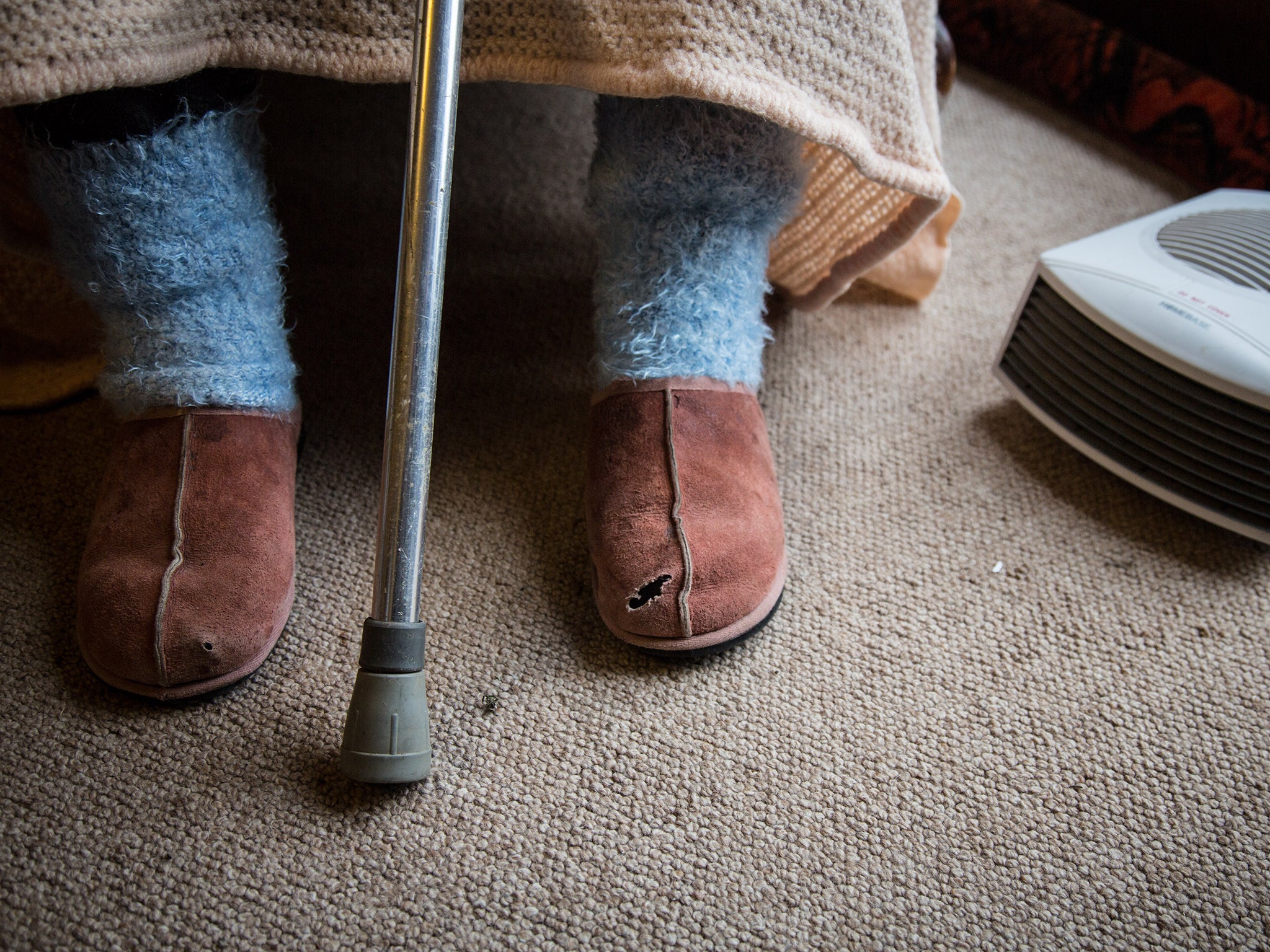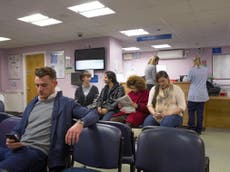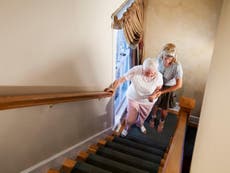The Independent's journalism is supported by our readers. When you purchase through links on our site, we may earn commission.
As we all head for old age, does Uber hold a solution for Britain's social care crisis?
Technology solutions have nothing on the hands-on care that home helps provide for the elderly, but tech might be able to super charge the service


There is a gathering sense of the huge importance of social care, and of how failures to tackle the problem affect us all. Take “bed blocking”, which is hampering effective health services in hospitals.
The problem is a simple one. Patients (often older ones) get better but remain in hospital in the chair next to their beds. It’s not their fault, they are desperate to leave, but there is a lack of social care. They are not in bed but they block beds because they cannot be discharged safely.
For patients already at home there is little point in delivering healthcare unless the basics of meals and hygiene have been met. I have left home visits in tears having seen patients lying on bare and filthy mattresses, known to social services but with attending home helps not allocated enough time, needing a re-referral back to social services because of social services care.
These basics of social care are the cake; they must come first. Healthcare is the icing on the top. In truth, combining NHS and social services into one budget was always going to be a mistake. With a limited amount of money, emergency services are always seen as the priority.
I was recently asked by someone with a large development budget to propose something new for the elderly population’s health. I wracked my brain. He suggested self-driving cars, virtual nurses, or toilets that call the GP for a home visit if they haven’t been used (that one made me quail).
The role of technology is intriguing, but home helps are right here, right now – these are minimally trained, lightly valued, youngsters or adults without higher education but working on the front line.
They are an army of mainly women workers, sometimes casual, sometimes very smart, sometimes highly experienced, or simply kind, but always very human. These are the only contacts that many of the elderly have, washed up into their front hallway, whether they like it or not.
You may not realise it, but somewhere near you, there’s probably an elderly neighbour you didn’t know you had. They’ve maybe been living there for 19 years, but for most of that time they’ve been house bound and unable to step out of the front door.
Perhaps, like the house I attended on a home visit recently, their home has not been done up since 1985. I let myself in and suddenly I’m in a dark, musty hallway decorated in brown. I call out several times so as not to startle anyone. Finally, I hear a croak and opening a door I find a 92-year-old lady stranded in her chair in an upstairs bedroom.
Is she forgotten? No; she has a cup of lukewarm tea next to her, her pills, she is dressed and clean. A commode and a walking frame are within reach and the telly is on.
Boring and lonely yes, but because she has carers four times a day (the maximum available) to get her out of bed in the morning and into bed in the evening and to feed her during the day, then this old lady can survive in her home and we can all sleep in our beds at night, comforted that people are not living in squalor or dying of neglect.
There are thousands of people in our country receiving or needing home helps. But although the size of the problem is large (and is only going to continue growing) there is no data on the number of home helps we need, no national register of home helps and no nationally recognised home help qualification.
On another visit, I come looking for a stool sample from an elderly man. But what stood out for me, in bright red crop tops and lipstick, were the two home helps. They wheel the patient into the bedroom under a hoist. They lift off his blanket and chat noisily to him as they slide the sling under his thighs and start to raise him from the chair. His wife tuts quietly, he has soiled his incontinence pad. I am watching at a safe distance.
The apparently teenage girls remove what looks like a huge nappy to get the sample. I have a full-frontal view of genitals which they briskly clean – every crevice – and then re-dress. The home helps appear to know how to work the hoist instinctively. Once he is comfortable reclined and decently covered, they invite me to commence my examination with a gesture.
They stand up straight, taking off their gloves and plastic aprons and collecting up the litter. To me they appear blinding, surrounded by bright lights; full body halos.
My proposal for our burgeoning elderly population? (which, I want to remind you, we will all join one day, unable gradually to shop, cook, clean for ourselves, then unable to walk or get to the toilet and at the last unable to use a spoon to move the food from the plate to our mouths); my final proposal?
Uber, but for home helps. Heroes called at the touch of a button, wearing encrypted cameras – checked continually by CRB-authorised matrons, to check any adult safeguarding issues at the outset, promote courteous behaviour (by both parties) and also to deftly avoiding any future Panorama exposes.
Imagine the reciprocal reviews; “Excellent sponge bath”. Imagine the pay variations (pricey at 8am, coming down to ordinary prices by 10am when demand has reduced), imagine the efficiency driving flexibility and cut-down commutes.
I think this idea is going to work, it’s a real winner, I just need someone to steal it, start it and make a future out of it….
Berenice Langdon is a GP and author of Learning Microbiology Through Clinical Consultation





Join our commenting forum
Join thought-provoking conversations, follow other Independent readers and see their replies